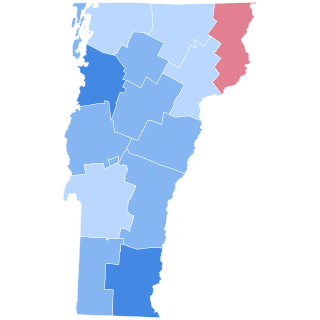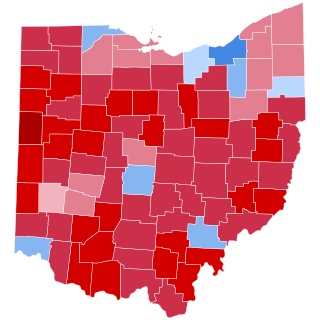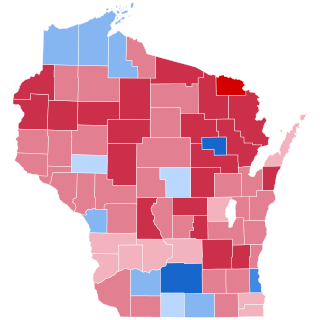Related Research Articles

The Nevada presidential caucuses are an electoral event in which citizens met in precinct caucuses to elect delegates to the corresponding county conventions. In 2021, Harry Reid passed legislation (AB321) to include primaries in hopes of increasing voter turn-out. Nevada has for decades and still does have a caucus. The caucus is where the delegates receive the votes that will be carried to the National Convention and not the primaries. There are 17 counties in Nevada and the state has 26 delegates. The Nevada caucuses began in 1981. The Kerry/Dean caucus was held on February 14, 2004. In 2008 the DNC gave Nevada the official first in the west status reflecting the growing importance of the West as well as Nevada's electoral bellwether status. The 2008 Nevada caucuses were the third major electoral event in the nominating process for President of the United States. In 2016, the Democratic caucus was held on February 20 and the Republican caucus was held on February 23.

This article contains opinion polling by U.S. state for the 2016 Democratic Party presidential primaries. For currency and accuracy, please note the specific dates for each polling as listed below. For the significance of the earliest state votes, the Iowa caucuses and the New Hampshire primary, see United States presidential primary – Iowa and New Hampshire. To know when any given state votes, see the timeline of primaries and caucuses.

This article contains lists of candidates associated with the 2016 Democratic Party presidential primaries for the 2016 United States presidential election.

Presidential primaries and caucuses were organized by the Democratic Party to select the 4,051 delegates to the 2016 Democratic National Convention held July 25–28 and determine the nominee for president in the 2016 United States presidential election. The elections took place within all fifty U.S. states, the District of Columbia, five U.S. territories, and Democrats Abroad and occurred between February 1 and June 14, 2016.
The following is a timeline of major events leading up to, during, and after the 2016 United States presidential election. The election was the 58th quadrennial United States presidential election, held on November 8, 2016. The presidential primaries and caucuses were held between February 1 and June 14, 2016, staggered among the 50 states, Washington, D.C., and U.S. territories. The U.S. Congress certified the electoral result on January 6, 2017, and the new president and vice president were inaugurated on January 20, 2017.

In the 2016 presidential campaign, Vermont Senator Bernie Sanders sought the Democratic Party's nomination in a field of six major candidates and was the runner up with 46% of the pledged delegates behind former Secretary of State Hillary Clinton, who won the contest with 54%. Sanders, the junior United States senator and former Representative from Vermont, began with an informal announcement on April 30, 2015, and a formal announcement that he planned to seek the Democratic Party's nomination for President of the United States on May 26, 2015, in Burlington, Vermont. Sanders had been considered a potential candidate for president since at least September 2014. Though he had previously run as an independent, he routinely caucused with the Democratic Party, as many of his views align with Democrats. Running as a Democrat made it easier to participate in debates and get his name on state ballots.

The 2016 New Hampshire Democratic presidential primary was held on Tuesday February 9. As per tradition, it was the first primary and second nominating contest overall to take place in the cycle. Bernie Sanders defeated Hillary Clinton in the primary by a margin of more than 22% in the popular vote. Sanders claimed 15 delegates to Clinton's 9.

The 2016 United States presidential election in Vermont was held on November 8, 2016, as part of the 2016 United States presidential election in which all 50 states plus the District of Columbia participated. Vermont voters chose three electors to represent them in the Electoral College via a popular vote pitting the Republican Party's nominee, businessman Donald Trump, and running mate Indiana Governor Mike Pence against Democratic Party nominee, former Secretary of State Hillary Clinton and her running mate, Virginia Senator Tim Kaine. Independent Vermont Senator Bernie Sanders received unsolicited write-in votes.

The 2016 Iowa Democratic presidential caucuses were held on Monday February 1 in Iowa, as usual marking the Democratic Party's first nominating contest in their series of presidential primaries ahead of the 2016 presidential election.

The 2016 United States presidential election in Arizona was held on Tuesday, November 8, 2016, as part of the 2016 United States presidential elections in which all 50 states plus the District of Columbia participated. Arizona voters chose electors to represent them in the Electoral College via a popular vote, pitting the Republican Party's nominee, businessman Donald Trump, and running mate Indiana Governor Mike Pence against Democratic Party nominee, former Secretary of State Hillary Clinton, and her running mate Virginia Senator Tim Kaine. Arizona has 11 electoral votes in the Electoral College.

The 2016 United States presidential election in Ohio was held on Tuesday, November 8, 2016, as part of the 2016 United States presidential election in which all 50 states plus the District of Columbia participated. Ohio voters chose electors to represent them in the Electoral College via a popular vote, pitting the Republican Party's nominee, businessman Donald Trump, and running mate Indiana Governor Mike Pence against Democratic Party nominee, former Secretary of State Hillary Clinton, and her running mate Virginia Senator Tim Kaine. Ohio had 18 electoral votes in the Electoral College.

The 2016 United States presidential election in Wisconsin was held on November 8, 2016, as part of the 2016 United States presidential election. Wisconsin voters chose 10 electors to represent them in the Electoral College via a popular vote pitting Republican Party nominee Donald Trump against Democratic Party nominee Hillary Clinton.

The 2016 Nevada Democratic presidential caucuses was held on saturday February 20 in the U.S. state of Nevada, traditionally marking the Democratic Party's third nominating contest in their series of presidential primaries ahead of the 2016 presidential election. The Republican Party held its South Carolina primary on the same day, while their own Nevada caucuses took place on February 23.

The 2016 Michigan Democratic presidential primary was held on March 8 in the U.S. state of Michigan as one of the Democratic Party's primaries ahead of the 2016 presidential election.

The 2016 Illinois Democratic presidential primary took place on March 15 in the U.S. state of Illinois as one of the 2016 Democratic Party presidential primaries ahead of the 2016 presidential election.

The 2016 Arizona Democratic presidential primary was held on March 22 in the U.S. state of Arizona as one of the Democratic Party's primaries ahead of the 2016 presidential election.

The 2016 Wisconsin Democratic presidential primary was held on April 5 in the U.S. state of Wisconsin as one of the Democratic Party's primaries ahead of the 2016 presidential election. Vermont senator Bernie Sanders won the contest with 56.5%, distancing nationwide frontrunner Hillary Clinton by 13 percentage points.

The 2016 New York Democratic presidential primary was held on April 19 in the U.S. state of New York as one of the Democratic Party's primaries ahead of the 2016 presidential election. Hillary Clinton, who had previously represented New York in the United States Senate from 2001 to 2009, won a comfortable majority in both the popular vote and delegate count over Bernie Sanders, who was born in Brooklyn.

The 2016 Arizona Republican presidential primary took place on March 22 in the U.S. state of Arizona as one of the Republican Party's primaries ahead of the 2016 presidential election. Despite a late challenge by Texas Senator Ted Cruz, Donald Trump won the primary and netted all 58 delegates in the winner-take-all contest. On the same day were held Democratic and Green primaries in Arizona, as well as Republican and Democratic caucuses in Utah and Idaho Democratic caucus, so the day was dubbed "Western Tuesday" by media.

The 2020 Arizona Democratic presidential primary took place on March 17, 2020, the third primary Tuesday of the month, as one of three contests on the same day in the Democratic Party primaries for the 2020 presidential election, while the contest in Ohio had been postponed for roughly a month. The closed primary allocated 80 delegates towards the 2020 Democratic National Convention, of which 67 were pledged delegates allocated according to the results of the primary.
References
- ↑ "Unofficial 2016 Presidential Preference Election Results". azsos.gov. Retrieved May 21, 2016.
- ↑ Eugene Scott (March 24, 2016). "Arizona Dems call for probe into voter suppression". CNN. Retrieved May 21, 2016.
- ↑ "White House to respond to petition alleging voter suppression in Arizona". KPNX. Retrieved May 21, 2016.
- ↑ Miriam Wasser (March 22, 2016). "Hillary Clinton Wins Arizona, Some Bernie Sanders Supporters Weary Of Potential Voter Suppression". Phoenix New Times. Retrieved May 21, 2016.
- ↑ Eugene Scott (March 23, 2016). "Bernie Sanders: 'Disgrace' Arizona voters waited 5 hours". CNN. Retrieved May 21, 2016.
- ↑ Liz Fields. "Phoenix Mayor Asks Justice Department to Investigate Alleged Voter Suppression in Arizona". VICE News. Retrieved May 21, 2016.